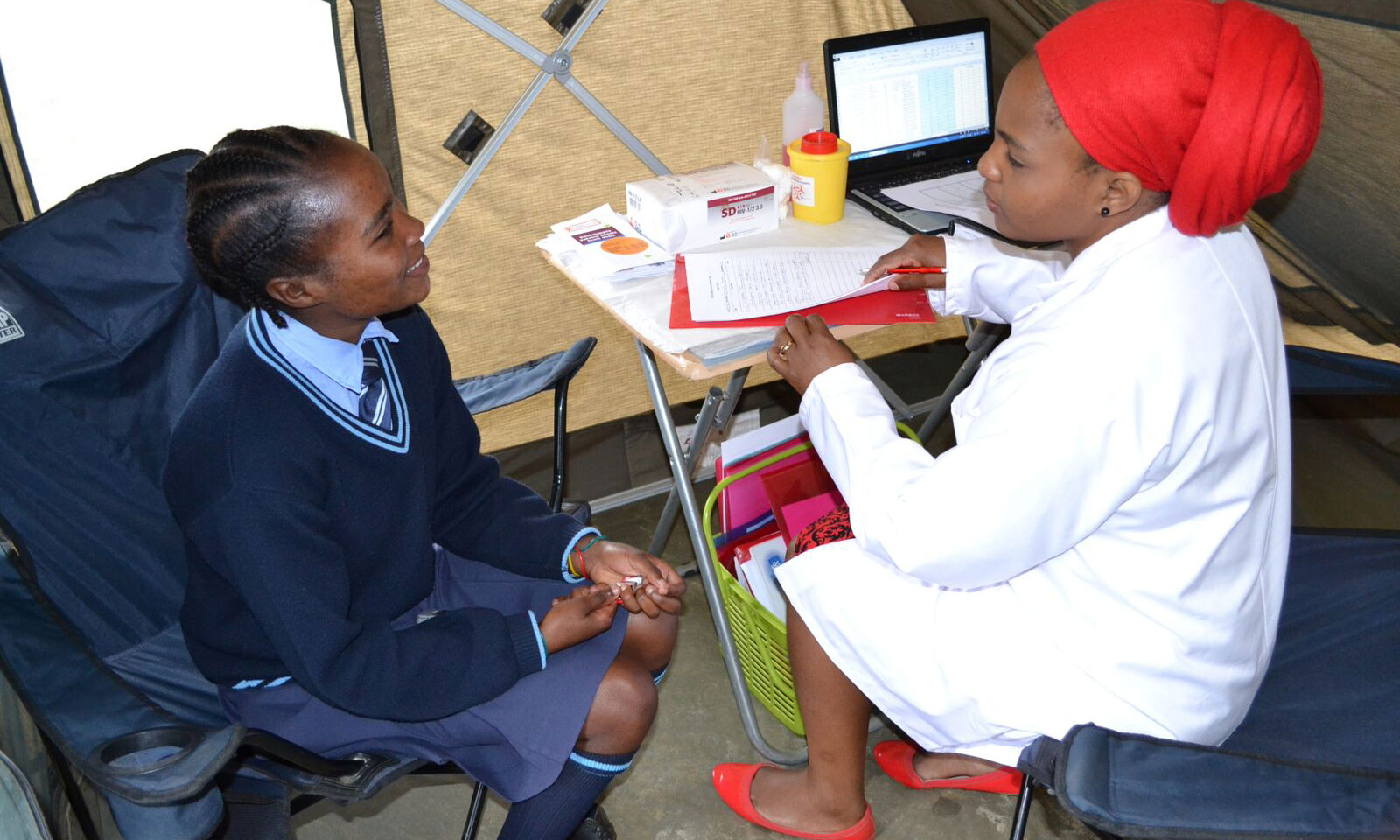CDC’s HIV Prevention Programs in South Africa:
Youth Prevention
Teaching Life Skills, Encouraging Open Communication to Foster Healthy Behavior
“Among black cultures it is taboo to discuss sex with your own children. Some parents believe that the Department of Education should not teach sex education. However, empowering parents to speak to their children about sexuality can actually prevent sexual activity and risky behavior. Programs like Families Matter! provide parents with the skills to talk to their kids about sex.”
— Hilda Maringa
Youth Prevention Activity Manager, CDC South Africa

The rate at which new HIV infections are acquired, or the HIV incidence rate, is a concern, with an estimated 469 000 new HIV infections occurring in the population 2 years and older in 2012. According to the HSRC Survey 2012, the HIV incidence rate among females aged 15 to 24 being more than four times higher than the incidence rate found in males in this group. Among the teenage population, the difference between the HIV prevalence between girls and boys is even higher: girls have eight times the infection rate of their male counterparts. Black African females aged 20 to 34 recorded the highest incidence of HIV among all the analyzed population groups. Individuals who were married had a considerably lower HIV incidence rate than survey participants who were living together with a sexual partner and those who were single. Individuals who were married had a considerably lower HIV incidence rate than survey participants who were living together with a sexual partner and those who were single.
Stronger Role for Families
To strengthen the role of families in HIV youth prevention, CDC South Africa is adapting and planning a nationwide pilot of the U.S.-based Families Matter! program to fit the South African context. Families Matter! is an evidence-based intervention designed to help adult family members effectively communicate with youth about HIV prevention while creating a safe environment, especially for young women. The program targets children before their first sexual activity, age 9-12 at schools by teaching them life skills so they can comfortably talk to their parents about sexuality.
CDC South Africa also trains young, out-of-school youth as mentors, and place them in youth centers, or youth-friendly clinics to help counsel and mentor peers. With HIV being an integral part of reproductive health and knowledge the counseling and mentoring may take the form of rape counseling or advice on sex and sexuality.
South Africa’s Department of Education (DOE) works with CDC South Africa’s partners to support comprehensive, skills-based HIV education. Health messages encourage delayed onset of sexual activity for youth age 10-14 and improve risk perception of multiple concurrent partners among sexually active youth. Gender issues are addressed through tailored curriculum for girls and young women to enhance their self-esteem and raise awareness about the risks of cross-generational sex with older men. CDC South Africa provides partners with skills-building assistance to promote best practices through curriculum-based HIV education, peer education, community mobilization, and parent interventions.
Coordinated efforts
CDC South Africa will continue to work hand-in-hand with the government of South Africa to coordinate prevention activities designed to protect the nation’s youth. Partners are encouraged to align their activities with the National Strategic Plan and to sign memoranda of understanding with relevant provincial governments to enhance program sustainability, integration, and effectiveness. In addition, partners in the same geographic area are encouraged to collaborate in order to leverage resources for greater coordination and coverage. National nongovernmental organizations are also requested to mentor and assist community based organizations.